Under-fire NHS trust recorded patient ate breakfast three days after he died

An NHS mental health trust, recently found guilty of serious failings in the care of a young patient who took her own life, has had serious concerns raised over the deaths of 20 other patients over the last 10 years, the BBC has found.
Coroners have repeatedly highlighted issues about the North East London NHS Foundation Trust (NELFT), including about the quality of risk assessments and record-keeping.
In two cases patient notes were found to have been falsified. Including one man who was recorded as eating breakfast three days after he had died.
An Old Bailey jury last week found the trust guilty of health and safety breaches in the care of 22-year-old Alice Figueiredo who was an inpatient at NELFT's Goodmayes hospital.
This article contains distressing material related to suicide.
Alice, who died in 2015, had attempted to harm herself on 18 occasions using plastic bags or bin liners, often taken from the same communal toilet. Despite this, the bags were not removed, and the toilet was left unlocked. On the 19th occasion Alice took her own life.
The trust was cleared of the more serious charge of corporate manslaughter.
After the trial, NELFT said it extended its "deepest sympathy for the pain and heartbreak" her family had suffered over the past 10 years, saying that it would "consider the verdict and its implications". It will be sentenced in September.
The BBC can now reveal in the decade since Alice's death, NELFT has been repeatedly criticised by coroners for failures in patient care.
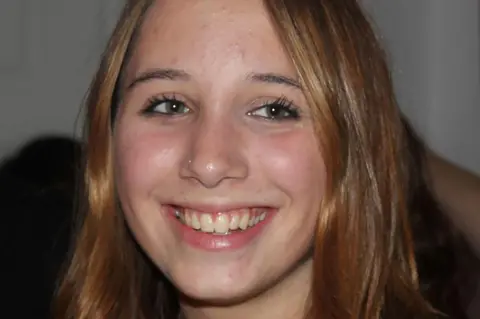
In the last decade, nearly 30 prevention of future deaths (PFD) reports from coroners have mentioned NELFT.
Of these, the BBC has analysed 20 which raise the most serious concerns.
In two cases where patients took their own lives inquests concluded records had been altered after their deaths.
The most common criticism found the assessment of the risk patients posed to themselves was poor or incomplete.
Cases also highlighted poor record-keeping, a lack of communication between teams, staff shortages and high caseloads.
Two patients who died of overdoses were said to have been on short-term medication for 18 years and 20 years, with no record of that having been reviewed.
In response, NELFT says it is continually improving "safety and treatment for patients, as well as the experience of families and carers". It also says it is improving record-keeping, tackling historical staff shortages and changing the way staff assess and manage risk, with all in-patient staff undergoing training.
Carole Charles, whose husband Winbourne's case is one of the most disturbing, said the Trust needed "to look at everything".
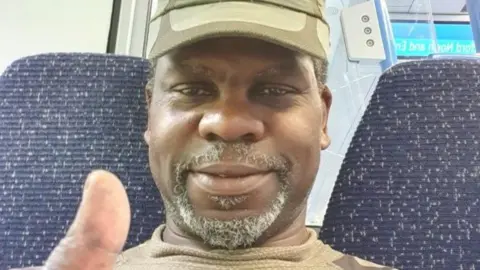
Mr Charles was a patient at Goodmayes hospital nearly six years after Alice Figueiredo's death.
Carole describes him as "a beautiful man, a beautiful soul", but during the Covid-19 pandemic, the 58-year-old became increasingly depressed.
Sitting in her kitchen, she is looking at videos and photos of Winbourne. His close childhood friend, Winston Andrews, is sitting alongside her as they laugh and smile at the memories.
"I had never known a part of my life when he wasn't in it," Winston says. "He was a brother rather than a friend."
But at the end of 2020, Winbourne became so unwell he was admitted to Goodmayes Hospital.
Winston says they all felt they had "tried everything", adding: "So maybe it is the right place for him to be, to try and get some help."
On 10 April 2021, five months after being admitted to the hospital, Winbourne took his own life.
For advice and support, visit BBC Action Line
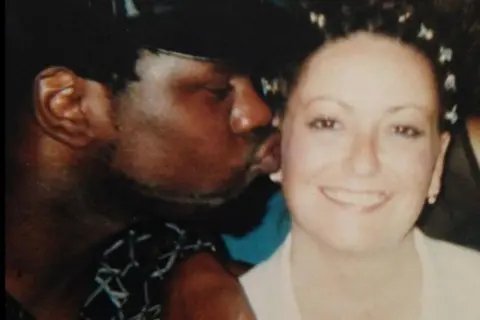
Carole and her children had spoken to him on a video call the day before. She describes her shock at the news, saying she was "absolutely devastated". She had thought "he was going in there to get better and come home".
Only at his inquest did Winbourne's family and friends discover the failures in care which contributed to his death.
The Prevention of Future Deaths report says a psychologist assessed Winbourne as being at high risk of harming himself. This was on his clinical record, but it was not read or discussed by the team of doctors and other clinicians overseeing his treatment.
They concluded there was "no risk" of him self-harming. The family says it meant the observations or checks on him made by staff were reduced from every 15 minutes to one an hour.
Even then, and against Trust policy, observations were stopped for all patients for an hour on the day he died. Between 16:00 and 17:00, the report says "all patients subject to general observation on the ward were ignored".
Winbourne was discovered soon after 17:00, about two hours after he was last checked.
The report says "staff agreed they panicked". The alarm bell was not sounded and doctors were not called promptly. A ligature cutter was locked in a box and no one knew the combination to unlock it. It also says: "Staff could not or would not provide a clear and relevant history to paramedics."
The report questions the credibility of the Trust staff who gave evidence to the inquest. It says observation records appeared to have been cut and pasted, including three entries that were made after he had died.
"They'd written observations of Winbourne being in the day room, sitting there eating his breakfast, and this was three days after he'd passed away," says Carole.
"Key to the observations is that you actually do the observations," says Winston. "You fill in the log. Clearly, they hadn't done it."
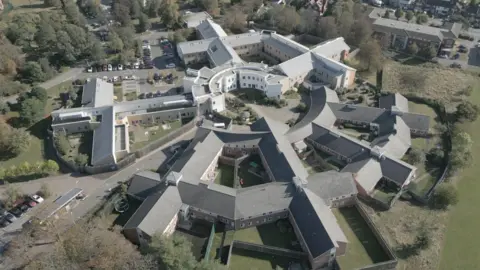
Carole and Winston also say they were deeply shocked when one of the staff members who gave evidence by video link, tried to do this from his bed.
"He was actually in bed. My mouth dropped," says Winston. "In a microcosm that showed me what kind of care Winbourne was getting."
A second staff member was on the tube heading to catch a flight. In both cases the family says the coroner, Graeme Irvine, intervened quickly.
Mr Irvine, senior coroner for east London, concluded Mr Charles had died from suicide, contributed to by neglect. He sent his PFD report to the trust and the Department of Health and Social Care to highlight what he had found.
NELFT, which provides mental health services for nearly five million people living in north-east London, Essex, Medway and Kent and employs about 6,500 staff, said it "apologised unreservedly" for his death.
It added: "We accepted all the findings from the coroner in April 2023, as well as the unacceptable behaviour of staff at the inquest."
Those staff were managed in line with human resources policies and disciplinary procedures, it said.
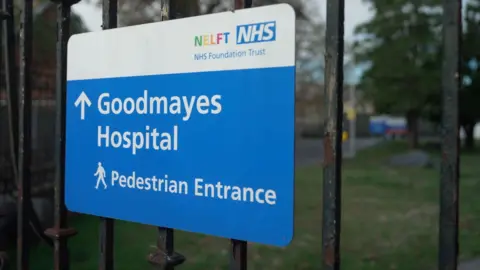
The charity, Inquest, has provided support for many families around the country who believe their loved ones have been failed by the mental health system. In Ms Figueiredo's case, her family spent 10 years fighting to get answers.
Inquest's director, Deborah Coles, said: "It should not be down to families to have to fight for cultural and policy change."
She said she believed avoidable deaths were happening "far too often" and trusts should "move away from a culture of defensiveness and denial and cover-up" to one that is concerned about learning and improvement and protecting patients.
She said she hoped plans for a new duty of candour, known as the Hillsborough Law, would change attitudes.
Mrs Charles, who has been a care worker for older and disabled people and says she knows what care is needed when people are vulnerable, remains sceptical about whether NELFT will learn from the deaths of patients like her husband and Alice Figueiredo.
"They keep saying they are going to change and they don't," she says. "These are people's lives which are taken. It leaves families devastated."
BBC




